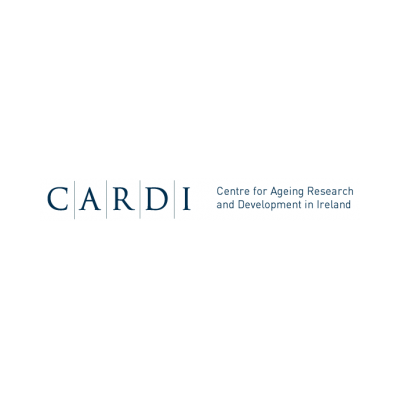Widening gap in wealth and income among older people in Northern Ireland
Two new reports reveal stark inequalities in wealth and income among older people in Northern Ireland. The research finds significant difference in income within this group.
Two reports launched by the Centre for Ageing Research and Development in Ireland in Belfast today (Thursday 12 June) examine the issues of wealth and income inequalities across and within generations across the island of Ireland. The reports stress the need to address inequalities among older people and ensure that the poorest older people are protected against cuts to income.
Professor Paddy Hillyard, Queen’s University Belfast, presented findings from research which explored wealth distribution across generations. It found that in Northern Ireland total wealth is estimated at just under £100billion of which people over 50 possessed the majority (65%) as a result of accruing savings, property, investments and income throughout their lives. However, it found many older people in Northern Ireland (21% of pensioner couples and 39% of single pensioners) rely on the state pension as their sole income. The report also notes that older people have lower weekly incomes in general than younger people.
Professor Hillyard says, ‘The research illustrates the differences in assets and income across the generations confirming what we have long known that older people have accrued the majority of assets such as property and savings. However, the research also shows that there is considerable inequality among older people themselves. Therefore, we call on Governments, both local and central, North and South, to find new and innovative ways to combine the resources (skills, time and money) of all age groups and generations in order to both strengthen intergenerational solidarity and reduce intergenerational inequality’.
Wealth and income across the generations:
- In Northern Ireland total wealth is estimated at just under £100 billion. People over 50 own 65% of wealth (property, savings and investments) and 44% of income. They also have the least amount of debt in comparison to other age groups.
- Older people in Northern Ireland (people aged 65+) have 43% less median disposable weekly income (£280) compared to those aged 25-49 (£494), 38% less than those aged 50-64 (£452) and 10% more than those aged16-24 (£251).
- People aged 65+ have the highest rate of home ownership (63%) and the lowest level of outstanding mortgage (3%) of any age group.
- They also have the highest level of savings (£4,000 on average) but the lowest level of value of household goods (a median of £525).
Paul McGill, CARDI, presented findings from a study on inequalities among older people in Northern Ireland. His research revealed significant differences in income among older people and a widening gap between the richest and poorest pensioners in Northern Ireland. McGill’s report also underlines the wider impacts of this inequality including health, and physical and mental well-being. For example, in Northern Ireland men who live in well-off areas can expect to live almost 12 years longer than men in deprived areas and women eight years longer (DHSSPS, 2012).
Paul McGill says, ‘We know that it makes little sense to talk about ‘older people’ as though they are all the same. This research illustrates that, in the case of incomes, there are major differences between the rich and poor and that the gap has grown bigger in the last few years. The poorest pensioners depend on the state pension and for many it is the only source of income. The basic pension is a vital lifeline for this group and it needs to be increased if we are to tackle inequalities in income, health and social inclusion.’
Income gaps among older people:
- Total incomes of the poorest pensioner couples in Northern Ireland did not change between 2003-06 and 2008-11 but the best off had a rise of £37 per week.
- The richest older people in Northern Ireland earn significantly more than the poorest- 36 times more for single pensioners and 44 times more for couples.
- The gap in weekly earnings between top and bottom earners aged 60+ in Northern Ireland rose from £294 to £430 between 2005 and 2012.
- Employees aged 60+ earn €2,400 less per year than earners in their peak years.
The reports underline the importance of designing social and economic policies that address the root causes of inequality across the life course. Policies should also seek to protect those who are poorest and most vulnerable.
The full reports and summaries are available at www.cardi.ie
Notes to editors
Professor Paddy Hillyard, QUB and Paul McGill, CARDI are available for interview.
For all media queries contact Nicola Donnelly, CARDI by email: nicola@cardi.ie or by telephone: 00353 (0) 86 2762397.
This research forms part of a programme of independent research commissioned by the Office of the First Minister and Deputy First Minister (OFMDFM) to inform the policy development process and consequently the views expressed and conclusions drawn are those of the authors and not necessarily those of OFMDFM.
The Centre for Ageing Research and Development (CARDI) is a not-for-profit organisation which promotes the research into ageing to help ensure that older people live healthy, engaged and vibrant lives. It promotes and communicates new directions in cross-disciplinary research and provides support to a community of researchers in Ireland, North and South, through its activities. For more information please visit: www.cardi.ie

CARDI
Centre for Ageing Research and Development in Ireland
Forestview,
Belfast
BT8 7ZX
United Kingdom
